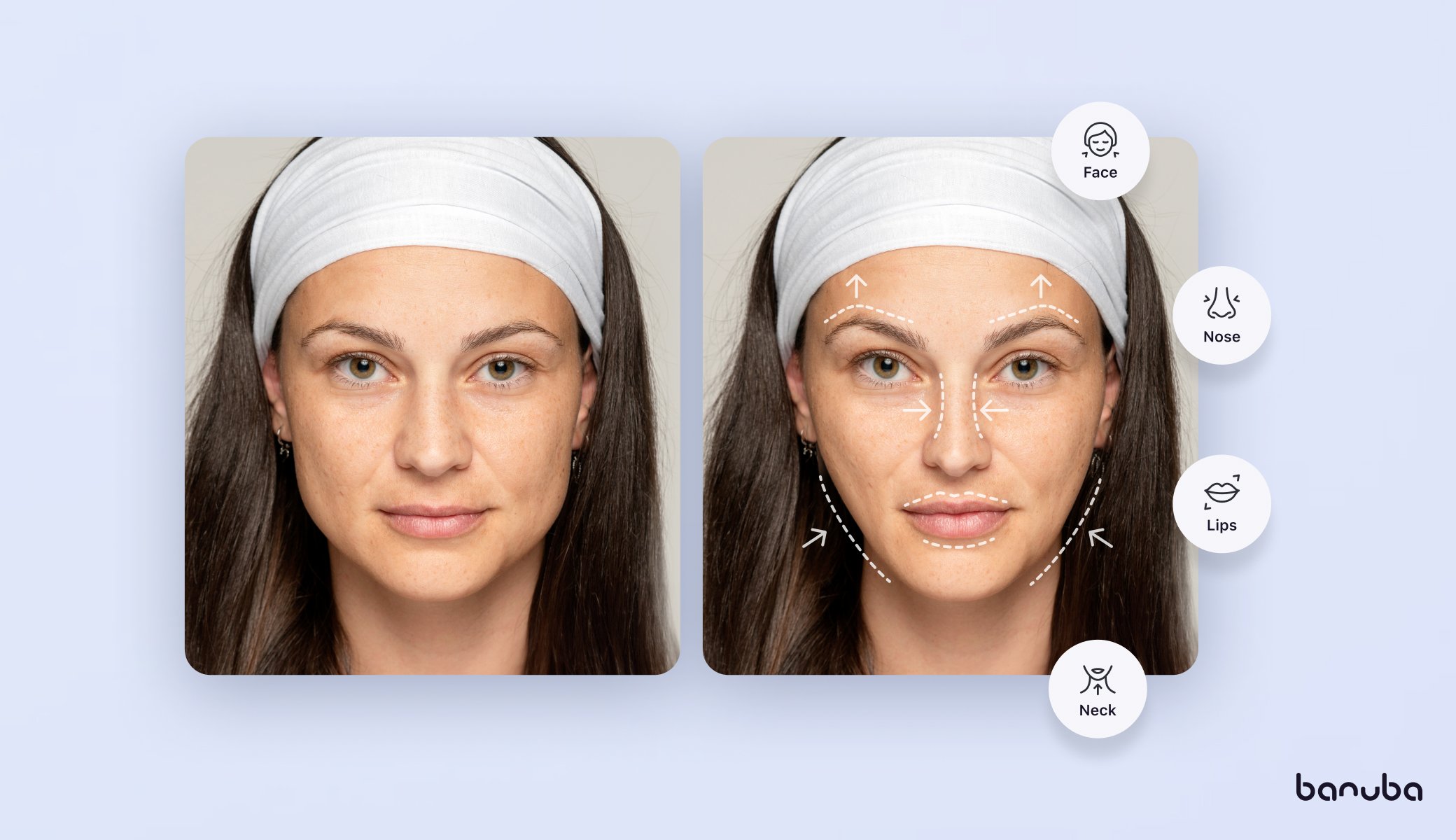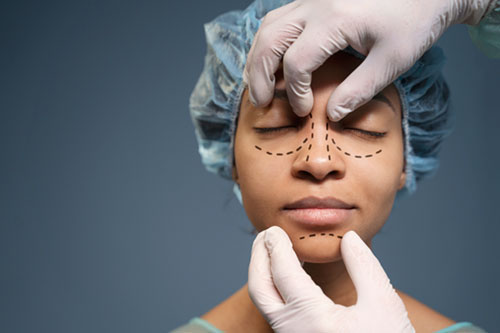Premier Plastic Surgery Seattle: Expert Take Care Of Your Visual Transformation
Premier Plastic Surgery Seattle: Expert Take Care Of Your Visual Transformation
Blog Article
A Deep Study the Usual Validation for Looking For Plastic Surgery: Unboxing the Desire for Modification and Self-Improvement

Social Stress and Charm Criteria
Often, societal stress and prevailing beauty criteria play a significant role in people' decisions to go after cosmetic surgical treatment (liposuction bellevue). In contemporary society, visual depiction greatly affects individual assumptions of attractiveness, commonly continued by media, celeb recommendations, and social systems. These channels frequently advertise idyllic versions of charm, leading individuals to internalize these criteria and assess their self-respect against them

In addition, these stress are not restricted to details demographics; they influence individuals across various ages, genders, and histories, highlighting the prevalent nature of elegance criteria. This widespread influence raises crucial inquiries regarding the ethics of cosmetic surgery and the ramifications of social standards on specific choices. Ultimately, recognizing these pressures is vital for promoting a more inclusive meaning of charm that celebrates diversity.
Individual Experiences and Transformative Stories
Lots of individuals who undergo plastic surgery report transformative experiences that expand past mere physical modifications. For many, these procedures act as a catalyst for boosted self-confidence and a renewed feeling of identification. People often define sensation liberated from enduring insecurities, causing raised confidence in both individual and expert worlds.
Take, as an example, the story of a young woman that went through breast enhancement after years of feeling uncomfortable about her look. Post-surgery, she reported not only a newfound convenience in her body however also a considerable improvement in her social life and occupation possibilities. In a similar way, a middle-aged guy that chose to undertake a facelift shared exactly how the procedure revitalized his outlook on life, triggering him to go after new passions and connections.

Psychological Factors Behind Plastic Surgery
Many psychological aspects add to the decision to undertake plastic surgery, mirroring much deeper emotional and mental wellness factors to consider. Individuals typically pursue medical improvements as a means to resolve sensations of inadequacy, reduced self-worth, or dissatisfaction with their appearance. These emotional motivations can be rooted in previous experiences, social comparisons, or individual desires.
Body image distortion is a prevalent concern, where people perceive their physical qualities in an exaggeratedly negative you could try this out light. This distortion can bring about compulsive ideas regarding viewed problems, triggering the need for medical alteration as a service. In addition, the search of excellence and societal stress can amplify these feelings, pressing people towards cosmetic procedures in hopes of accomplishing an idealized version of themselves.
Moreover, the idea of self-improvement plays a crucial role. Lots of individuals watch cosmetic surgical treatment as a path to boost their high quality of life, thinking that improved appearance will certainly bring about enhanced social acceptance, much better relationships, or improved occupation opportunities. Eventually, the mental aspects behind plastic surgery highlight the intricate interaction between individual self-perception and outside influences, disclosing the diverse nature of the desire for modification.
The Role of Media in Perception
In today's society, media plays a pivotal duty fit perceptions of beauty and self-worth. Via various platforms-- social networks, television, and advertising-- idyllic requirements of appeal are usually disseminated, influencing individual desires and self-image. These representations frequently highlight narrow meanings of good looks, predominantly featuring vibrant, slim, and electronically boosted photos, which can develop impractical criteria for people striving to conform.
The effect of media is further aggravated by the prevalent nature of social media sites, where users are pounded with curated material that highlights cosmetic enhancements, supporting a society of contrast. This constant exposure can bring about feelings of inadequacy amongst customers, triggering them to think about plastic surgery as a way of achieving the viewed perfect. Research study shows that individuals who involve with these media representations are more probable to reveal frustration with their appearance, strengthening the desire for surgical treatments.
Furthermore, the normalization of plastic surgery in media narratives can desensitize audiences, mounting such treatments as commonplace and even necessary for social approval. Hence, the media's portrayal of appeal not only influences individual options relating to cosmetic surgical treatment however likewise adds to a more comprehensive social discussion about self-worth and identity.
Future patterns and honest considerations
Amid the expanding appeal of plastic surgery, ethical factors to consider surrounding the method have become progressively popular. As the demand for procedures climbs, so as well do concerns concerning educated consent, the emotional motivations of people, and the potential for exploitation by doctors. It is critical for specialists to make sure that clients fully recognize the dangers and benefits, along with the ramifications of their options, to promote an accountable approach to aesthetic enhancements.
Moreover, the influence of social networks and beauty standards questions about the effect on mental wellness, especially view website among at risk populaces. As understanding of body picture problems grows, moral technique demands a mindful analysis of the inspirations behind surgical treatments. Surgeons have to balance individual needs with moral duty, making certain that decisions are rooted in real self-improvement instead than societal stress.
Seeking to the future, trends might change in the direction of non-invasive and technologically advanced procedures, stressing individual safety and complete satisfaction. Additionally, the consolidation of psychological analyses could aid deal with underlying issues before surgical intervention. The cosmetic surgery field should adapt to these ethical challenges while promoting a culture of openness and self-acceptance, ultimately prioritizing the health of patients.
Verdict
Finally, the pursuit of plastic surgery is influenced continue reading this by an assemblage of societal stress, personal experiences, and emotional elements. The need for placement with dominating charm standards, combined with the potential for transformative end results, highlights the complex motivations driving people toward these treatments. Moreover, the function of media fit perceptions of charm can not be downplayed. As ethical factors to consider develop, future trends in cosmetic surgical procedure will likely reflect ongoing social discussions bordering self-improvement and individual identification.
Frequently, societal stress and prevailing beauty standards play a significant duty in individuals' decisions to pursue cosmetic surgery. liposuction bellevue. Inevitably, these transformative tales highlight the diverse factors individuals look for cosmetic surgical procedure, linking personal growth with the pursuit of visual improvement
Lots of people check out cosmetic surgery as a pathway to improve their high quality of life, thinking that boosted appearance will certainly lead to raised social approval, much better relationships, or enhanced occupation chances. Ultimately, the mental aspects behind cosmetic surgical treatment highlight the complex interplay between individual self-perception and external impacts, disclosing the diverse nature of the wish for adjustment.
As ethical considerations develop, future trends in cosmetic surgical procedure will likely show recurring societal discussions surrounding self-improvement and individual identification. liposuction bellevue.
Report this page